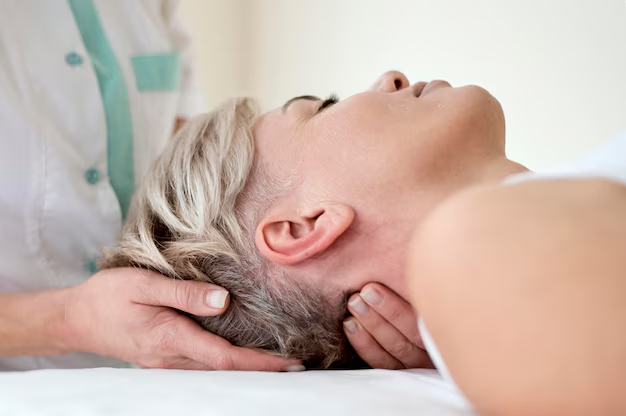Finding Relief: Strategies to Tackle Migraine Effectively
If you've ever experienced a migraine, you understand the intense and often debilitating effects these headaches can have on daily life. Unlike typical headaches, migraines can manifest with severe pain, nausea, and sensitivity to light and sound, lasting anywhere from a few hours to several days. Understanding how to manage and mitigate these symptoms is crucial for those dealing with chronic migraines. Let's explore the myriad strategies available to help alleviate migraines with a focus on essential information and practical guidance.
Understanding Migraine Triggers
One key to managing migraines is identifying and understanding your specific triggers. While not everyone is affected by the same factors, some common migraine triggers include:
- Stress: Emotional stress, anxiety, and tension often precede and exacerbate migraines.
- Dietary Factors: Certain foods and drinks, including alcohol (especially red wine), caffeine, aged cheeses, and processed foods, can trigger migraines.
- Sensory Stimuli: Bright lights, loud sounds, and even strong smells can initiate a migraine.
- Hormonal Changes: Particularly in women, hormonal fluctuations can serve as a significant trigger.
- Sleep Patterns: Both lack of sleep and oversleeping can contribute to the onset of migraines.
Tracking these triggers through a migraine journal can be beneficial in identifying patterns and lead to better management strategies.
Lifestyle Changes for Migraine Management
Making certain lifestyle adjustments can significantly reduce the frequency and severity of migraines.
Stress Reduction Techniques
Stress management is vital for migraine prevention. Incorporate daily practices like:
- Meditation and Mindfulness: These practices can decrease anxiety and reduce stress levels, leading to fewer migraines.
- Regular Exercise: Engaging in physical activities such as yoga, walking, or swimming can release endorphins, naturally combating stress.
- Adequate Rest: Prioritize a consistent sleep schedule to help your body regulate its internal clock.
Dietary Adjustments
Understanding how food and drink affect your body is another layer of migraine prevention. Consider these dietary practices:
- Hydration: Ensure you're drinking enough water throughout the day to prevent dehydration, a common migraine trigger.
- Avoiding Trigger Foods: Pay attention to foods and drinks that precipitate headaches and consider eliminating them from your diet.
- Balanced Meals: Regularly timed and balanced meals help maintain blood sugar levels, reducing the likelihood of migraines.
Over-the-Counter and Prescription Options
When lifestyle changes aren't enough, medications might be necessary to manage migraine symptoms. It's important to discuss with a healthcare professional the best options suited to your needs.
Over-the-Counter Medications
Non-prescription medicines can offer relief for some individuals:
- Ibuprofen or Aspirin: These can sometimes alleviate mild migraine pain.
- Acetaminophen: Effective for some, especially when combined with other medications.
Prescription Medications
For more severe or frequent migraines, prescription medications may be required, including:
- Triptans: These specifically target migraines and help relieve pain and other symptoms.
- Ergot Alkaloids: Used to treat migraines by narrowing blood vessels around the brain.
- Preventive Medications: Such as beta-blockers, anticonvulsants, and antidepressants, which may be recommended if migraines are frequent and severe.
Important: Always consult a healthcare professional before starting any medication regimen.
Natural Remedies and Alternative Approaches
For those seeking natural methods, various alternative treatments can alleviate migraines. While their effectiveness may vary, they offer additional avenues to explore.
Herbal Remedies and Supplements
Certain herbal supplements have been associated with migraine relief:
- Butterbur and Feverfew: Both of these herbs have shown promise in reducing migraine frequency.
- Magnesium and Riboflavin: Some studies suggest they might help decrease the duration and occurrence of migraines.
Acupuncture and Massage
- Acupuncture: This traditional Chinese medicine practice has provided relief for some individuals by balancing the body's energy flow.
- Massage Therapy: Can relax tense muscles and reduce stress, potentially lessening migraine frequency.
Coping Mechanisms During a Migraine
Even with prevention strategies, migraines may still occur. Having a set of coping mechanisms can aid in managing the discomfort until symptoms subside.
Create a Calm Environment
- Quiet, Dark Room: Find a place away from light and noise to rest.
- Cold Compress: Apply a cold pack to the forehead to reduce pain.
Relaxation Techniques
- Breathing Exercises: Deep breathing can ease stress and help you manage pain.
- Progressive Muscle Relaxation: Tense and relax different muscle groups to relieve tension across the body.
When to Seek Professional Help
Recognizing when to seek help is crucial. If migraines severely impact quality of life or become more frequent and intense, seeking advice from a healthcare provider is essential. They may suggest imaging tests or refer you to a specialist for further evaluation.
Understanding and managing migraines requires a multifaceted approach. By recognizing triggers, implementing lifestyle changes, exploring medication and natural remedies, and developing effective coping mechanisms, individuals can significantly reduce the impact of migraines on their lives.
Key Takeaways:
- 🧘♀️ Stress Management: Incorporate meditation, exercise, and sleep regulation.
- 🥤 Hydration and Diet: Stay hydrated and pay attention to dietary triggers.
- 💊 Medication: Consider both OTC and prescription options under professional guidance.
- 🌿 Natural Remedies: Explore herbs like butterbur and supplements such as magnesium.
- 📅 Keep a Migraine Journal: Track triggers and symptoms to identify patterns.
- 🤕 Professional Help: Seek medical advice if migraines worsen or become frequent.
Empower yourself with information and tools to navigate life with migraines, enhancing your well-being and quality of life.

